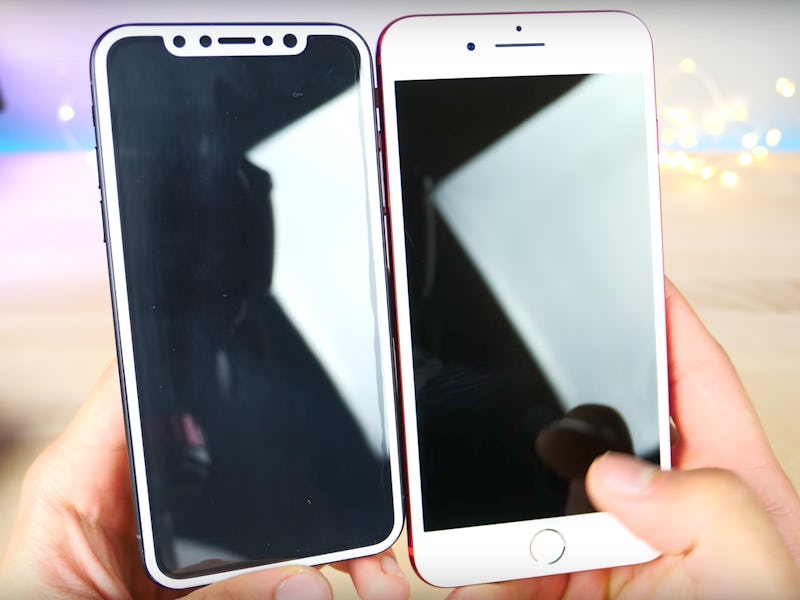The iPhone 8's Radical Redesign Will Cut an Iconic Apple Feature
Apple's next phone is going to look amazing, at a cost.

The iPhone 8, expected to launch this fall, is going to make some big changes to Apple’s smartphone. Gone is the home button, with a 5.8-inch OLED screen occupying most of the front of a device about the same size as the 4.7-inch iPhone 7. Also gone is the single-lens camera, replaced by a dual lens system that may offer 3D depth scanning to improve augmented reality experiences. But according to a new report published Wednesday, Apple may take things one step further and remove a feature used by owners daily.
A report from Mac Otakara, citing sources, claims that it now looks unlikely the iPhone 8 will have a fingerprint scanner. The scanner is currently located on the home button, and its removal has led to the company exploring a number of solutions for checking users’ identities. One previously-rumored solution was that Apple would hide the fingerprint scanner under the display, so users would rest their thumb on the screen to unlock, but the chances of this are low.
Instead, users are likely to depend on facial scanning using a front-facing sensor set. Beyond the standard camera, proximity sensor and speaker, Apple will include three “iris sensors”:
The report chimes with one released earlier this month, which claimed that Apple would use more than one sensor to protect against fraudulent authentication using a flat photo. This is an issue that reviewers discovered the Samsung Galaxy S8 suffered from.
Another solution that Apple is said to have been exploring is a fingerprint scanner on the side button. Some phones like the Huawei Honor 7i and Sony Xperia Z5 have used a similar system, but at this stage it also seems that this solution will not make the cut. Leaked side button components reveal a solid design, making a surprise scanner unlikely.
The device is expected to launch alongside an iPhone 7S and 7S Plus later this year, but the report claims that shipments of the premium device may not start until far later into the year.